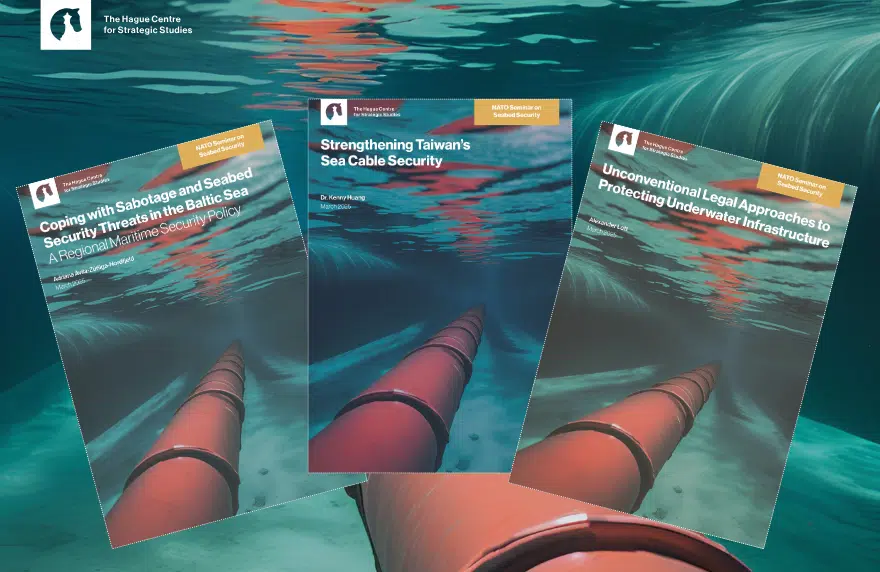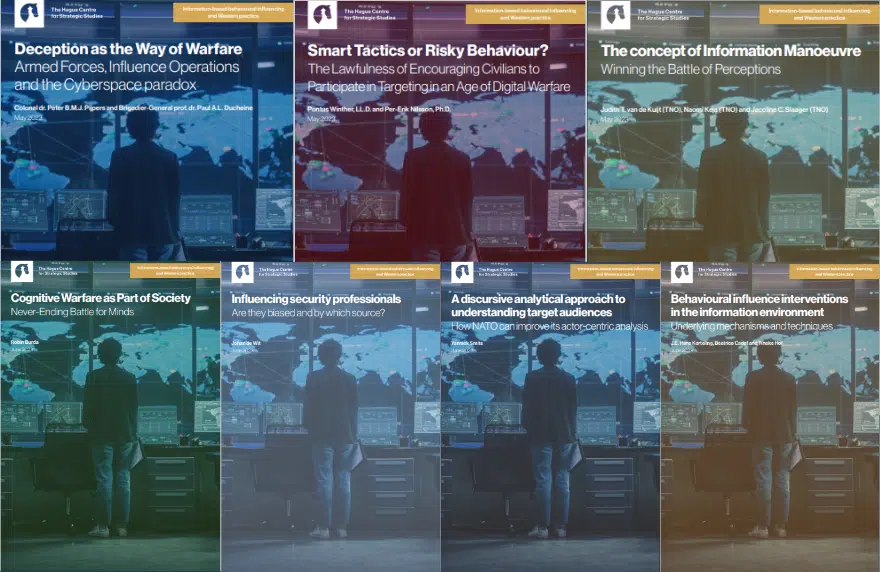The seabed is under attack — and so is our security. Recent incursions by Russian vessels and the sabotage of underwater power and internet cables have exposed critical vulnerabilities in NATO countries’ infrastructure. This threat to security, as well as societal and business continuity, demands urgent and unified action.
In preparation for the NATO Summit in The Hague (June 25-26, 2025), TNO and HCSS, in close cooperation with the Dutch Ministries of Defence and Infrastructure & Water Management, organised an exclusive NATO Seminar on Seabed Security, on March 27, 2025. The seminar brought together leading experts for inspiring panels to discuss topics like “The Threat Landscape – From Baltic to Global”, “Smart Responses – Innovation & Risk-Based Resilience”, and “Race to the Bottom – Collaboration Across Sectors.
As a follow-up, HCSS asked several experts to contribute a guest paper on Seabed Security.
Paper 1 | Unconventional Legal Approaches to protecting Underwater Infrastructure
In his contribution, Alexander Lott (researcher at the Norwegian Center for the Law of the Sea at UiT – The Arctic University of Norway) explores legal solutions to safeguard critical underwater infrastructure from sabotage and accidental damage. Existing international law offers little protection beyond territorial waters, leaving submarine cables and pipelines vulnerable. The paper examines unconventional legal tools—ranging from piracy laws to safety zones—that could help coastal states take action. As recent incidents in the Baltic Sea and beyond have shown, securing these vital assets is more urgent than ever.
Papert 2 | Strengthening Taiwan’s Sea Cable Security
Submarine cables are the lifeline of global digital communication, yet they remain vulnerable to geopolitical risks, cyber threats, and sabotage. Dr. Kenny Huang (Chair, Taiwan Network Information Centre) examines these security challenges and explores strategies to protect critical infrastructure. From AI-powered monitoring to stronger international cooperation, the paper provides key recommendations for strengthening sea cable security in an era of rising global tensions.
Paper 3 | Coping with Sabotage and Seabed Security Threats in the Baltic Sea: a Regional Maritime Security Policy
How can regional cooperation improve maritime security in the Baltic Sea? Adriana Ávila-Zúñiga-Nordfjeld (Senior Lecturer, Swedish Defence University) explores the feasibility of expanding the Helsinki Convention and HELCOM to include maritime security measures. The paper highlights the need for a regional agreement to counter undersea sabotage threats through standardized policies and cooperation.
Edited by HCSS deputy director Michel Rademaker. The Seminar on Seabed Security was part of a series of NATO Summit pre-events organised by HCSS together with other partners to set the stage for the 2025 NATO summit in The Hague, on June 24 and 25.







